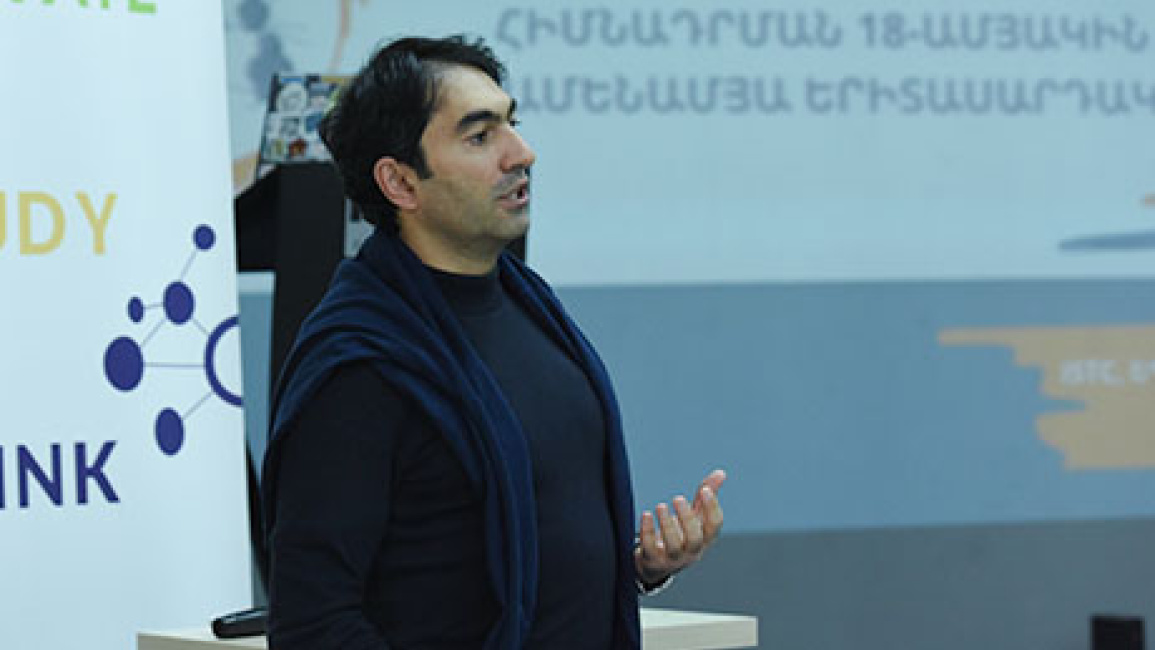- Main
- Node
- THE SCIENTIFIC GROUP OF THE YSU FACULTY OF SOCIOLOGY IS STUDYING THE MECHANISMS OF SPREADING AND CONSUMING FAKE NEWS ON SOCIAL NETWORKS
December 30, 2022 | 09:33
Education
Science
THE SCIENTIFIC GROUP OF THE YSU FACULTY OF SOCIOLOGY IS STUDYING THE MECHANISMS OF SPREADING AND CONSUMING FAKE NEWS ON SOCIAL NETWORKS
As a result of the competition for internal scientific grants, Yerevan State University has guaranteed funding for the scientific topic "Mechanisms of Spreading and Consumption of Fake News in Social Networks" led by Doctor and Professor of Political Sciences Artur Atanesyan, Head of the Department of Applied Sociology of the Faculty of Sociology.

Aiming to identify the communicative mechanisms and features of creation, distribution, and consumption of fake news by Armenian users in social networks, the leader of the scientific group A. Atanesyan said that the problem of fake news affects various groups, from states to technology companies, non-governmental organizations, media, and individuals.
In a conversation with us, referring to the relevance of the studied topic, A. Atanesyan mentioned, "Each of these groups has its role and motives in the production and consumption of fake news. They are not only about the media and news-consuming groups but touch much deeper social processes characteristic of the current information age."

Fake news is one of the most modern and at the same time one of the most complex phenomena characteristic of the current information age. They are characteristic of mass communication and along with the development of communication technologies, they receive new manifestations from the point of view of both formation and dissemination mechanisms.
Speaking about the negative consequences of fake news, A. Atanesyan emphasized, "Spreading fake news misleads the public, creates alternative directions of information, through which it is possible to divide the public, incite public fears, spread anti-national ideas, and create information security threats."
The scientific group develops the theoretical-conceptual bases and approaches for researching fake news in social networks as a component of virtual information communication processes, trying to characterize the Internet mechanisms and opportunities in terms of creating and spreading fake news in the socio-political sphere, classifying Armenian users of social networks according to communication characteristics of behavior (creating, spreading, consuming, discussing, liking, rejecting, checking, etc.), evaluates the knowledge and understanding of fake news among Armenian users, characterizes the thematic issues and directions in which fake information is mainly spread.
According to the leader of the scientific group, an interdisciplinary approach will be used during the studies, or, in other words, a set of modern research methods developed within the framework of sociology and related sciences.
It should be noted that within the scope of the grant program, Elena Shuklina, professor of the Department of Sociology and Public Administration of the Ural Federal University of the Russian Federation, gave lectures at the Faculty of Sociology.
Karine Hovhannisyan

